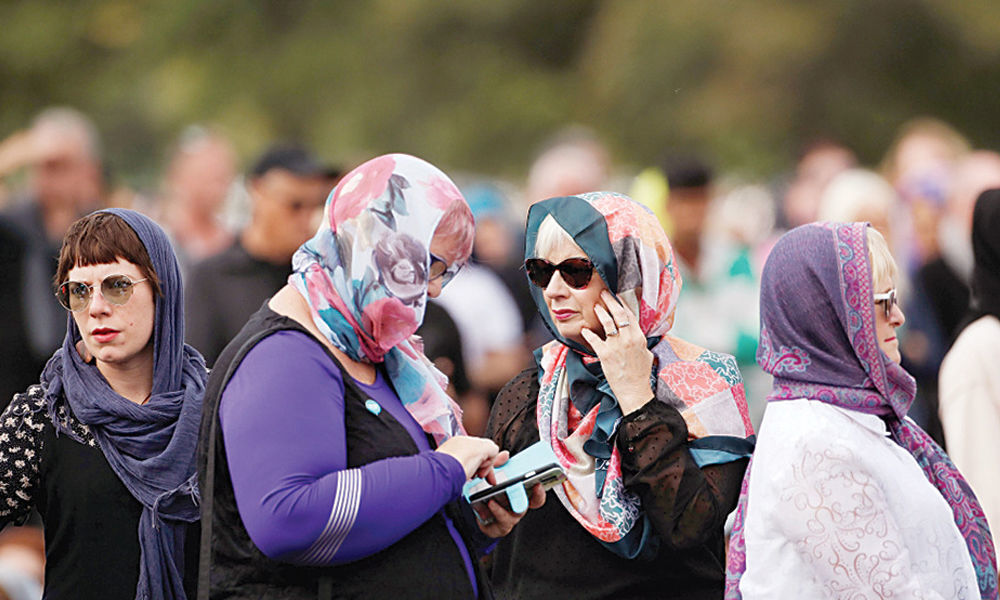Live
- Khammam: Granite industry in crisis
- Over Rs. 6 Crore Aid to Benefit 3,000 Families This Year: Dr K Prakash Shetty
- Berhampur: MKCG PG student assaulted
- TDR bonds will be issued to those hit by ‘master plan’: MLA
- Bhubaneswar: Woman abducted, freed
- Kendrapara: 17 held for fishing illegally
- Odisha seeks Regional Met centre in Bhubaneswar
- Odisha set to lead in farm reforms, says KV
- Metro Rail, Science City on the anvil in Dhenkanal
- 11 beneficiaries receive Rs.11.18L aid under CMRF
Just In
Kiwi women don headscarves as mark of peace


Women across New Zealand wore makeshift hijabs as a statement of peace and solidarity on Friday, a week after a white supremacist killed 50 Muslims at two mosques in the southern city of Christchurch
Women across New Zealand wore makeshift hijabs as a statement of peace and solidarity on Friday, a week after a white supremacist killed 50 Muslims at two mosques in the southern city of Christchurch.
Rafaela Stoakes, a 32-year-old mother of two, said wearing the Islamic head covering gave her an insight into what it means to stand out and feel part of the minority.
On Friday morning she covered all but a few locks of her dark chestnut-coloured hair in a loose red and white scarf, crossed neatly beneath her chin and tucked into a black hiking jacket.
She was one of many women embracing #HeadScarfforHarmony, to make a stand against the hate espoused by the Australian man accused of killing dozens of worshippers.
Headscarves were also worn as a mark of respect by policewomen and non-Muslim volunteers directing the crowds around the site in Christchurch holding communal prayers on Friday. Many were wearing a headscarf for the first time.
The gesture caught on nationwide - in offices, schools and on the streets - as well as at the ceremonies held in Christchurch to mark one week since the killings at the hands of a self-avowed white supremacist.
Women flooded Twitter, Facebook and other social media - which played a key role in allowing the gunman to spread his message - with their images. Kate Mills Workman, a 19-year-old student from Wellington, posted a selfie on Twitter wearing a green headscarf.
"If I could I would be attending the mosque and standing outside to show my support for my Muslim whanau, but I've got lectures and I can't really skip them," she said, using a Maori language term for extended family.
Although the headscarf has been the subject of contentious debate over gender rights in the Islamic world, for Stoakes, the day has been a lesson in how pious Muslim women often do not have the option to melt away into the background when they feel vulnerable.

© 2024 Hyderabad Media House Limited/The Hans India. All rights reserved. Powered by hocalwire.com






